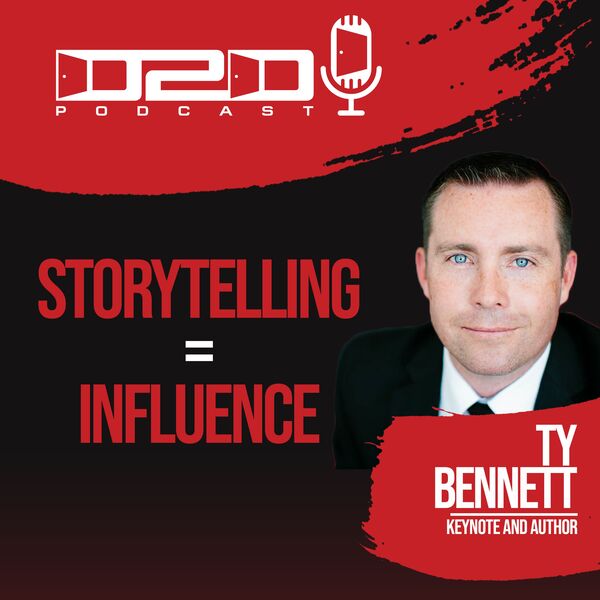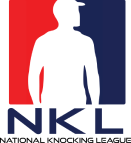Speaker 1: (00:02) Bill, Can I help you?
Speaker2: Hey listen up, I’m bringing you the best content to ever exist in the door to door industry from sales leadership, recruiting, impersonal development.
Speaker 1: Why would I need that?
Speaker 2: Because never before have we been able to collaborate with the top experts in their industries, sharing their secrets and techniques and what makes them the best.
Speaker 1: Wait, who? Who are you?
Speaker 2: I’m your host. Sam Taggart, creator of the D2D experts in Ddd con. Is there a place we can sit down?
Speaker 1: We’ll come on him. Speaker 3: Register today for D2DCon, learn from over 40 amazing speakers including the real wolf of Wall Street Jordan Belfort. Come as a team. Learn as a team. Leave as a tribe.
Speaker 2: (00:47)
All right, I’m Sam Taggart, your host and the D2D and I’m here with Todd Bennett who is a world renowned speaker. He’s the author of four amazing books you’ve got “The power of influence”, which has sold hundreds of thousands of copies, “The power of storytelling”, “Partnership is the new leadership”… He has built over a $20 million company and by his twenties and is now speaks hundreds of times a year… and just he is amazing. And I crossed him hard this morning and basketball. So just to put things into perspective. Luckily we’re on this I was to say. And then you left and then I lost the last um, anyway, so great at basketball, great family man. And I’m super excited to have him at D2DCon. So he’s one of our main keynote speakers and honored, privileged to actually like hear him in his element after seeing him in his personal life.
Speaker 2: (01:44) I’m like, Oh, do we fund to kind of see you and your, Your Business Life? I’m probably not as good at. And I dunno what’s it. No, we were inspired. My wife, like obviously in churches works with your wife and it’s like we look up to you guys and those listening to this like realized that when he says stuff like lives it, there’s people that it’s like, oh I want to see what he really is. Like Ty’s one of those guys are like he probably doesn’t do himself as good of a service it’d be should from his personal background. Just so you guys know. I can see that where I hope to be like that one day. Anyway. I think that’s the piece gees
Speaker 3: (02:18) Though. Like I think the power comes in who you are offstage. Exactly. I mean I think that’s what really resonates with people when you’re on stage. No. And, and it’s hard cause you never know anybody could put it on a good face for an hour. Yeah. And I’m sure you see those kinds of guys in our business as we grow up. We hired a bunch of speakers cause we put on events, right? And we hired some guys that man, like you’d walk off stage and you’re like, that guy’s the biggest jerk I’ve ever met in my life. You know, and I love his content. I had read his book or whatever. But yeah, unfortunately some people just don’t walk the talk. And I think that incongruence, it’s funny to watch those speak. They haven’t lasted right then when maybe hit it big for a minute, but none of them have had staying power. Cool. No. So what we’re going to into today, I’m, I’m,
Speaker 2: (03:00) I’m excited because you resonate really much with the sales guy as much as the leadership, um, and also to the offstage and our business life, the personal life. Okay. I’m actually really interested in all three of these topics of like storytelling. An influence in this whole partnership is the new leadership and this new concept of like where the industry and the market’s going. And I think I’d love to hear some of your insight on all of it. Okay. And I have a few questions and then take advantage of them. And so if you’re watching this, you can ask some questions. Maybe at the end we’ll take some. But, um, the first question I have is kind of like what, what inspired you to kind of step out of this whole $20 million business and to like speaking and doing what you’re doing? And it’s like what could it started? So I’ve always, yeah,
Speaker 3: (03:43) Wanted to be a speaker. I remember like in high school I
Speaker 2: (03:46) Decided I wanted to be a speaker, which another been the NBA, right? Well I did, that’s five foot three as a freshman freshman team and I just, it wasn’t going to happen. I grew to like five 11 and I could dunk in high school and I thought I was in I, Oh, where’s that? Yeah. Oh my God. I don’t know if he could touch the net. I’m not to share it. So, uh,
“But I was really involved in this program called Deca, which is like student leadership business program. And we hired a speaker and I was the guy who literally handed him a $2,500 check.”
Speaker 3: (04:06) But I was really involved in this program called Deca, which is like student leadership business program. And we hired a speaker and I was the guy who literally handed him a $2,500 check. And then I watched him just mesmerized this group of students and they were laughing. I was like, I want to do that. You know, like I just, I just thought it was cool and went the entrepreneurial route that I really view myself as an entrepreneur. And so my brother and I started business and started to grow that and where I found myself more and more because one, it was a personal interest and two, because I feel like I had some talents there was in speaking and training our team and the leadership development side of growing our business. And so as like I said, we brought in other speakers and so I’d go take him to dinner after they spoke for us, you know, John Maxwell or the Les Brown or Peter Vidmar or t Harv Eker or some of these other guys.
Speaker 3: (04:58) And like, so how do you get into this? And just started to kind of pick their brain a little bit to start to understand that for me. Um, and it was just kind of more of a passion thing, something I wanted to pursue and something I wanted to do. Uh, and you know, now I view myself more as a speaker and then an author, I’ve written four books, I’m reading writing another one right now, but they kind of go hand in hand. So when people hire me to speak, the hired me speak on storytelling or influencer, you know, like the model of writing a book and then delivering that message on stage has worked really well. Uh, but yeah, it’s, it’s a fun process. I like looking at what’s working, what’s not and trying to dissect it and trying to teach it and it just takes the entrepreneurial mind for sure.
Speaker 3: (05:41) Yeah. Yeah. I now build a speaking and training business, right? My brother and I built a business in direct sales and then morphed into building a speaking training business. Uh, yeah. Which snake? Cause a lot of people, I think they’re like, I want to be a speaker, but they’re not the, they don’t realize it takes the same door knocking. Is it running a business anyway? It is. You have to treat it like a business, just like a, yes. It’s not a hobby. I mean, it can be a hobby, but you’re going to make no money. Uh, and so for me, I just jumped it, I studied it out for several years, like looking at what are the best people doing and finding what resonated with me and how I was going to approach it. And, and, you know, wrote my first book and started knocking doors like crazy and reaching out to people.
Speaker 3: (06:23) And, and we still do, I mean, my team’s grown and so I have other people on my team that are out marketing me and my role more and more as my job is to give the next speech and write the next book. And I host a podcast and, you know, do some different pieces that put content out there for us to use from our marketing standpoint. But, but yeah, it’s, it’s just the hustle in it and you have to get after it. Love it. So tell us about this story telling concept, cause that’s one of your bigger sellers, right? And a lot of people hire you on and us being, you know, on the door OurSpace cells and home selling, uh, leadership. I mean I look at storytelling has really influenced, I’m sure those two show side by side, but there’s this interesting concept of how to leverage stories.
Speaker 3: (07:03) Tell us a little bit kind of your philosophy of storytelling. So I agree. I think when you look at influence, I mean at the ultimate car, what causes people to act and make decisions by move forward is emotion and stories are the best way to for me to connect to your emotion, to cause you to move. And so if you look at influences, I want to, I want to create some type of action, whether I’m in a leadership role and I want you to act on the ideas and implement it. I’m in a sales role and I want you to buy my product or whatever it is. I we’re having an interaction because I want to influence you to move in some way. Stories I think are one of the best tools we have to do that. I think storytelling is one of the most underrated skills in business.
Speaker 3: (07:43)
100% I and people who, you know, there’s that old cliche saying, but it’s true because I speak in every industry. You can imagine, right on this topic, if I think about your American Express to sales teams, sales teams, I mean far boy to call. Like on this topic in particular, I’ll speak, you know, to pharmaceutical, to a car salesman to door to door to network marketers, to speakers, to financial advisors. There’s that old saying that whoever tells the best story wins. And it’s true in every single industry. If you learn how to tell a story that connects and engages and causes people to take action, it’s incredible. So for me, what led me here is my brother and I were out selling as 2122 year old entrepreneurs and I started recording every presentation that I gave, which is the worst experience of your life. You know, when you first listened to that, uh, as I started to get better and work on all those little things, what I started ask us, what caused somebody to engage?
Speaker 3: (08:44) Like at what point did they start to laugh? Did they start to ask questions that they interact more and where did then the conversation before, it was always when I was telling stories. When you went out of robotic sales mode to, okay, let me tell you about Tammy down the street and all of a sudden that story connected and then we started having a real conversation cause guards went down and you’re laughing and you’re interacting and now when I ask a question they’re not guarded and they open up a little bit more and so you can ask a followup question. And, and so I developed my own storytelling process for me and it worked. We built a successful company. I sold a lot, I taught it to our team internally. And then I started speaking, I was speaking on the power of influence and my, you’ll see if you come to the door to door con, you’ll see as I speak, I’m going to tell a lot of stories.
Speaker 3: (09:30) That’s my natural style. And I had people who came up after I spoken like, will you coach me on speaking? Will you teach me how to tell stories? And I was like, okay, you know, so, but it caused me to like strip it down and it makes you have to be more conscious or competent and conscious about what it is, what you were doing for sure. Cause teaching some a different level, right. I mean you, you could be a great salesperson, but being able to teach it different animal, you could be a great whatever. Being able to teach it to no, here’s the principles and here’s how you build it. So that led me to write in the book the power of storytelling. And I, cause this is the book I wish I had when I was 21 years old. And I don’t mean that like him just cause it’s so great makeup.
Speaker 3: (10:11) I finally got him. Uh, yeah. So, but I don’t mean it because I think it’s like, I think it’s great, but what I wanted was like a nuts and bolts of the Bible. I wanted somebody to break it down and go, okay, okay. How do you use narration versus dialogue? How, what’s the structure of a story? Is there a blueprint to it? How do you make characters come alive? Like what kind of details do you put in? What do you take at like really teach me how to tell stories because I think it’s a skill people can learn. And I think it’s interesting. Did you study, I mean you look at Hollywood, they’re, the ultimate storyteller is essentially right. I’m sure that it’s, it’s what makes somebody want to watch that movie to the end. What makes somebody want to even care to listen to you?
Speaker 3: (10:51) What, like what distinguishes you different than somebody else is having a better story? So I think here’s the other problem that we run into, right? So I’m out selling what’s, I’m doing solar roof or whatever. Um, a lot of times it’s hard to think of a story or what story is the right story? Like how do you distinguish what story part of it is the worst time to think of what story to use as the in the moment, right? When you’re like, okay, what do I use here? So I think there’s some prep work to that. And, and in that you kind of develop kind of a catalog of certain stories that you can use in certain situations. Like this is like to break the ice story. This is like the, I need some more muscle stories. Look at it from this standpoint in there, right?
“I’m on stage a hundred times a year. Different clients, different, you know, different situation. When you’re knocking door, that’s your stage, right?”
Speaker 3: (11:32) I’m on stage a hundred times a year. Different clients, different, you know, different situation. When you’re knocking door, that’s your stage, right? So new person, you can use the same material every single time you can. If you find the right canal, you might tweak it because this person, you know, they’re younger, you’re going to react differently. Certain situation, you opened the door and you’re going to have to respond to whatever. The situation isn’t just like, Whoa, you know, or whatever it is, right? But there are certain stories that are good icebreakers to open people up and start the conversation. There are certain client success stories that you’re going to share in certain situations. Like, you know, I totally get that concern. You know what I found with your neighbor down the street or whatever it is. So you have some of those in your arsenal, they are ready to go.
Speaker 3: (12:18) And I think it’s a skill that you work on. The problem is we look at communication and specifically storytelling as this thing that we should just do naturally. And so we don’t put in effort towards it. Um, but I think it’s, if somebody puts in the effort and does the prep work, and I had this journal, the I’ve kept for a long time that I called my influence journal and I would just like, right, that’s a good story. Like if I, we had a success with our product, go, oh that’s a great story because you might’ve forgot it when you need to use it in some x sales presentation or you know what I mean? Cause that’s my biggest problem is I’m like, I can’t, okay. I think of a story on this. It’s like, uh, well, and it helped in that process. And then, I mean, has been amazingly helpful for me as I’ve gone to now try to take those principles and like write a book because you’re going back and going, okay, where did we use this principle 12 years ago?
Speaker 3: (13:08) But you have some of those key stories, those benchmark pieces that show how it happened and how it came together. Cool. So Do’s and don’ts of telling a good story. There’s a lot, you know, and we’re going to dive in deeper, uh, you know, when I’m there, but a couple, couple of key things. One, uh, my first rule is if it’s not necessary to say becomes necessary not to say, hmm, okay. So the problem is we take a two minute story. We tell it like five minutes and nobody cares. Uh, I actually had this guilty I was like, wait a minute, that’s my wife. She’s like, circle circle, you’re going in circles like, oh yeah, good point. Well, anytime you’re like, get to it. Yeah. This literally happened the other day. We have all my wife’s family over for Thanksgiving. Uh, my, I have a brother in law, he starts telling a story and there’s another brother in law, hasn’t are like five of us sitting around and I watched all of them be like get it out.
Speaker 3: (14:03) And one of them actually said in the middle goes, there better be a really good ending to this. Cause the buildup has been really long. Like yeah. So just getting to the point like cutting out and that, that takes that prep work. It takes a little bit like practicing it, writing it out, just thinking through it. And I don’t mean write it out like, okay, here’s word for word, exactly how I have to say this. But thinking through, how would I say this? So the words come to your mind a little bit quicker so that it just flows a little bit more naturally. Yeah. Cause if you, let’s say you could fit in, you want to fit in these five powerful stories in your sales process, you could fit them all in and not drag the sales process out so long because you took him from five to two minutes or one minute.
Speaker 3: (14:42)
It’s like Jerry Seinfeld, great comedian, right? He said he would spend hours upon hours trying to take a six word joke and make it five words long. And the reason you would do that is in comedy, the quicker you get from the setup to the punchline, the bigger the left. Well, storytelling, the same premise would apply it, right? If I can tell a story in two minutes, effectively, now some stories are a little bit longer inherently in, that’s fine because there’s, there’s certain pieces that have to be there. But understand when you understand the components that need to be there, then you can kind of trim the fat, get rid of the excess information. So just the more concise you are, the more compelling it becomes. Right. I love that. So how w like some other like key points like to create this emotion, right? Are there certain words or certain styles, energy that you want to bring like ebbs and flows? Like how your, sure, for sure there’s, there’s a, there’s a structure to it. The simplified version would be that an influential story is struggle to solution. Okay. Okay. So let’s take, uh, you know, security, right?
Speaker 3: (15:45) His die. I want to just keep going on this. Can’t giggle. Okay. So, Eh, you take, we still recording there. Yeah, let’s go. I just need to remember around 19 minutes. End Up. Okay. Can go ahead and the word fart. So the simplified version would be, it’s struggled a solution, right? You Hook people with the struggle, you help them with a solution. Okay? So let’s take security system for example, right? That solves a problem, right? So the story itself is not just coming out at like, here’s how great our system is. Here’s, here’s why it’s different than everybody out. Here’s why it’s unique. It solves a problem. There’s emotion attached to the problem. And so sharing it from a struggle to solution standpoint, obviously the product is going to be the solution, but you hook them with that. So sharing it in one person’s context of, you know, one of the people that we worked with, Susan down the street, this was what she was worried about this where some things that she was noticing.
Speaker 3: (16:43) I don’t, you know, you, I know you guys have had some break ins in the or whatever the struggle is in that story and then you’re quickly going to get to that solution and show them how that solves the problem. And that could be any objection that could for sure. You know, like I can’t afford his business. Really, when you think about it, it’s to solve problems. Yeah. And yeah, I think one of the best ways to handle objections is with a story. Yeah. Right. It, they’ll all like feel, felt, found. That’s it telling a story. Right. I understand how you feel. I actually, some of our clients felt that way, but you know, as we did this, this is what they found. I’m telling you, a client successful that feel, felt, found method is a framework to get to the punchline quickly for sure.
Speaker 3: (17:22) And I like how it’s just like boom, boom, boom, punchline. Yeah. It’s, it’s very simplified from that standpoint. And the truth is a door to door in particular, you have to be as concise as possible, right? You’ve got to get there pretty quick and you’ve got to try and establish and make a connection really quick. And so if you can do something that kind of gets people to pay attention, opens them up, laugh something that all of a sudden they’re like, oh, I like this guy. They’re going to have much more of a conversation unless you knock on my door and my wife would talk to you for hours. It’s just different. It’s um, okay. So shifting gears a, any other things that you want to say on storytelling that you’re like, here’s like a must or a don’t or a well, we’ll dive into it.
“if I get big numbers, that’s great, but now I need to bring it into one person’s story cause I relate person to person.”
Speaker 3: (18:02) Yeah, no, at the event. But um, you know, there’s a lot of pieces I think that go into it. One other, one other, this is going to sound like really weird to give you advice from Joseph Stalin, but Joseph Stalin the great dictator, horrible dictator. Really. Uh, he had this really morbid quote that I think is so poignant that people miss. He said, the death of one man is a tragedy. The death of a million is a statistic. That’s really more of it when you think about it. But when it’s, when he’s, what he’s talking about is how we emotionally process information. And so what we tend to think is that if we go with big statistics, like huge numbers, shock and awe that people are like, oh my gosh, here’s the problem. That doesn’t mean anything to me. Emotional. So if I get big numbers, that’s great, but now I need to bring it into one person’s story cause I relate person to person.
Speaker 3: (18:52) So if I say this affects 10 million people, like my sister Jill and I tell Jill story, then you’re like, oh like cause you can connect with her. Little did they know that there’s 8,000 jails. But it’s like, it’s like let’s bring it down to the one. But that one story I love visualizing, it makes it accessible from an emotional standpoint. And I also found like trying to find who is your doppelganger and essentially, right? It’s kind of like, oh you remind me a lot of jail because she’s a 30 year old. Their shame. That’s a great lead in, right? Yeah. It’s, it’s a perfect, like it’s interesting as I’m talking to you because you remind me so much of boom, boom. And there’s, there’s just power in that word set up because you’re subconsciously, I’m thinking, oh, interesting. This applies to me. Another way that I teach people to do that is instead of saying like, let me tell you a story, because whether it’s conscious or subconscious, we kind of go, why do I care?
Speaker 3: (19:46) Yeah. It’s like what’s the story about the visa? Is it matter to me? So another way you can do that is to ask a you focus question on the front end of the story. So you focused question would be would the word you as in the question. So I could say in the same, have you ever thought about this or ever worried about this? Or do you ever deal with the situation? You’re like, yeah, actually blah, blah blah. And I’m like, oh, that’s interesting because, and now that story pertains to you. It actually, yeah, you just, you just related it to them before you bring it out. So the technique is that I tap into your world with a question and then I’m bringing into my robe with a story. Now you’re connected, right? Same idea of if I were to relate it to, oh you remind me of, I’m saying this story is about you and so you need to care.
Speaker 3: (20:26)
Right. Same thing if I ask you a question. I love that. Okay. So I want to shift gears because in our world, you obviously came from the network marketing world, which you had to build big teams and influence and motivate and recruit and you know, and I think that’s the same sentence. We are network marketers and door to door in her own world record for sure. Very similar structure. So I found that like obviously you probably utilize some of this techniques and strategies with your own teams, right? So from a recruiting standpoint, do you find pause, hello? 24 1944 Tom will be up in just a minute. Okay. Sorry. No, you’re good. Just remember 19 and 24 okay. Your numbers and we’re not alive anymore so it’s, I don’t know why that were on this. That’s all right. I got it. And they get a teaser for the answer, man.
Speaker 3: (21:14) I’ll put a comment tucked out dot once it come down at night. Okay. All right. Christian, we are alive again. You’re talking about motivating your team somehow tie this together. Good luck. So when motivating a team or recruiting or um, using some of the strategy, how did you kind of leverage some of these tools or how did that help you as an influence standpoint? Well, I think it’s all the same, right? In recruiting, you’re selling an opportunity. Is this the same as if the door, you’re selling a product? And I think the principles are all very, very similar. Uh, storytelling I think is even more important when you’re selling an opportunity because people have to see a vision of it. They have to see how this plays out for them. And so I have to put you into that story and help you to see that.
Speaker 3: (22:03) And then in the understanding, from an influence standpoint, understanding what motivates you, what are those trigger points for you? And remembering that to come back to as I want to help you to remember and keep going and push through when it’s tough or whatever it is. Because some people that you’re going to recruit are driven by the money. Some people are driven by changing their situation. Some people are driven by kind of the prestige or the the ego stroke that’s going to come with them being able to buy the certain car that they want or whatever it is. And I don’t think there’s any wrong or right to it, but if I understand you individually and so I can reach you individually, then I can motivate you more effectively. Yes. So I, one of the principles I teach in the power of influence is the platinum rule, which is to treat other people the way they want to be treated. Speaker 3: (22:48) Right. Well, the golden rule teachers to treat other people. Yeah. I was going to say catch that. I was going to say platinum road. Wait, the golden rule, the golden rule, treat other people the way we want to be treated in terms of morals and decency. Fantastic. But when it comes to leadership and influence, it doesn’t work because all of your people are different. Yeah. It’s like they don’t care. They may have different value systems that they have different motivators that triggers for them. Yeah. They want to be communicated to differently and in, so if you individualize that leadership approach, that motivation approach, that recruiting approach, not because you’re giving preferential treatment to somebody, but because you care enough to understand them. There’s a big difference in those two things because some people go, well, he did that for that person. Yeah. Because he understands how to drive that person and he’s going to do the same for you.
Speaker 3: (23:33) If you’re willing to show up at that level for your people where leadership is individual, it’s not collective, then you can much more effectively move people forward. Love that. Um, so when, when you’re leading and people deal, like obviously we have many sales reps and team members and management and whatnot, you deal with a lot of problems, headaches, you know, dark that get thrown at you. Um, what would you give like a manager or an an influencer? Essentially. How, what advice would you give him in those kinds of situations where it’s getting kind of the, the targets on him? Like people are kind of like, oh screw you, or mutiny or you know what I mean? Like kind of these problems situations. So you know, every situation is a little bit different. One of the things that I think we have to recognize in, in the leadership role is that we’re in the people business, right?
Speaker 3: (24:22) And there’s so, there’s no specific set system strategy. Here’s exactly what you do because every person’s different, every situation’s different. But I think I’m a big fan of having real conversations with people, the conversations that nobody wants to have because that’s the only way to get through those situations. And so I don’t think it has to be ugly. I don’t think it has to be anything rough from that standpoint. But to sit down and go, let’s have a real conversation about this, like, what’s working, what’s not? Where are we at? What can I do better? What can you do better? How do we move forward with this? And that takes a lot of confidence from a leadership standpoint. And it takes a willingness to just put yourself out there. I think that authenticity and that vulnerability is what people are craving. I think they’re screaming for it.
“I think I’ve heard a quote that was the most authentic person in the room tends to be the most influential.”
Speaker 3: (25:08) Uh, and so, you know, given every situation is a little bit different. But I think being willing to have some of those conversations, uh, where a lot of leaders we just run from him. Yeah, I think I’ve heard a quote that was the most authentic person in the room tends to be the most influential. And I think that’s a good quote. I think it’s, I mean I’ve probably come out and spend to it, but essentially you could probably a phrase it with the shorts out of there, but like, essentially it’s, it goes back to that principle and I think we all get afraid to have those. You know, what if he, what if he called me names? Wouldn’t be. What if he says what I don’t want to hear or you know, so if I don’t have that conversation, I to hear editor well, and I think, uh, I had a conversation with somebody recently.
Speaker 3: (25:48) I spoke at this event, uh, and I was in the line after eating lunch with some of these executives that we’ve just spoken for and, and this guy, he goes, okay, what would you say is the number one characteristic of a great leader? And I said, I’m going to give you one that you probably have never heard somebody answer. And he goes, okay. I said, meekness. And he goes, what? And I is like, like the Bible, I only time you hear the word and they go, yeah, he goes, I said, most people don’t understand what it means. Meekness is power under control. So take a leader in that situation. It is so easy to throw darts back. It’s so easy to be reactive is so easy to go. Yeah. Are you kidding me? So I’ll give you a cool example. Happen about two weeks ago, Uber just got kicked out of England, like done.
Speaker 3: (26:39) And there’s, they’re filing, their lawyers are falling. Injunctions trying to change that, but it came out of a bad reputation. Not all in England, but just overall. Uber’s had some situations happen. They have a new CEO that was put in not too long ago, and he sent an email to all of their employees and he said, we’re going to move this forward. We’re gonna work on trying to restore this, but let’s look at what got us here and let’s understand that our reputation is going to be more powerful than anything else and how do we make that better? That’s on you. That’s on me. That’s on all of us. That’s meekness.
Speaker 2: (27:16)
Yeah. That’s taken a situation about we’re all over the world. We are being totally wrong. This is ridiculous. There’s no way this will, yeah,
Speaker 3: (27:23) Hold. We will fight it until we get back in there. He took this totally different approach where he went, let’s see, let’s, what can we learn from this? How can we be better as a group? That’s meekness. I think there’s, there’s that, that power under control that real leaders have that you know, you, when you’re in that situation you’re like, okay, he’s got his act together. I mean there’s that old quote that says being positive in, in chaos is not naive. It’s leadership. And so being that calling presence where you can be more solution oriented and you can go, okay, I’m going to remove the emotion and go, okay, how do we solve it? What, what’s our next step? Yeah.
Speaker 2: (28:01) That’s where leaders step up. I love that. Okay, so then kind of transitioning into this one, this partnership is the new leadership. I mean it’s interesting. That’s the title and I don’t know tons about it, but you know, my whole phosphate, this new movement at Donut Orrcon is we live in a cut through business where everybody is stealing each other’s people and it’s like I win, you lose. I’m assuming it has something to do with and tell us kind of a little bit about that. Well, I think that it’s, I think it’s the evolution of what leadership needs to be if is the market’s changing as the workforce is changing, as industries are changing, is what’s being valued as, yeah.
Speaker 3: (28:37) Different. I think leadership has to change with it. And the biggest factor to that is your people show up for you differently when you show up differently for them. Right. And the interesting thing about your industry as an outsider watching it, and this may be somewhat true, but it’s true, it was true in network marketing. I’ve seen it true in other industries, is the leaders who truly have influence over the people who partner with them, who build them up, who do all those, the right principles, those leaders carry influence. And they could leave. Yeah.
Speaker 2: (29:12) Yeah. Bring everybody with them. All right. Right. I’ve experienced that a, yeah. You know, and I told, I told the CEO, you know, we had our disagreements and or whatever and he’ll let me go and, and I, I was like, this isn’t a good play. It was me or another guy. Right? Yeah. And I was like, that means 95% of your salespeople follow the leader, not the company. And I was like, I’m sorry, but they just don’t resonate with that guy. And I, I, I’d love to make this work. But yeah, it was that. I mean, and, and, and you’ve seen it over and over and over
Speaker 3: (29:42) Again. And it’s like, people need to realize that as much as, yeah, you’re right in a paycheck, but who’s influencing them? And so I think leaders have to recognize that this is, this is, um, uh, calling cry for leaders to realize that you can’t lead from title, position and authority anymore. Yup. This is a, you have to lead from partnering with your people, from building them up, from influence, from investing in them, from giving them a voice, like all those pieces that have to be in place for real influence to happen. Uh, and, uh, this, the kind of leadership that works and it’s in today’s world. I love that.
Speaker 2: (30:17) I’ll do Tyler. I know you’ve got to go. I’ve got another one I gotta do. But, um, any other I want, I want to appreciate you for your time. I know we’ve had this on the calendar for hell. Yeah. I mean, it’s been like, Hey, Lisa shares one of these days. We should do one of those, you know? Um, no, but honestly, this has been fun. I honestly, uh, an honor to one, have you on the show and to just to have this relationship and I always ask the same question at the very end. Okay. I always ask if you could give our industry like the door or space as a whole, um, one piece of advice, what would it be? Hmm.
Speaker 3: (30:51) Hmm. That’s a good question. Uh, for me,
“I think that I would tell you to treat your personal growth as your most important process.”
Speaker 3: (30:57) I think that I would tell you to treat your personal growth as your most important process. So in that, that, that means that, you know, being, getting better and better on the door, getting better, better at sales, getting better at leading your people, getting better at recruiting, being listening to something like this. I mean, the fact that if somebody is listening to that and they just heard me say that they’re living exactly what I’m saying right there, they’re seeking development and learning. There’s a reason why I have literally thousands of books in this office, and I’ve read every one of them because as I get better, my life gets better. I can have more impact. I can, uh, you know, get in front of bigger audiences and do more to make an impact in the world. And so I think that’s part of the process is just constantly getting better every single day. I love it. Love it.
Speaker 2: (31:45) Thank you. Appreciate your time. No, see, you don’t have .





























